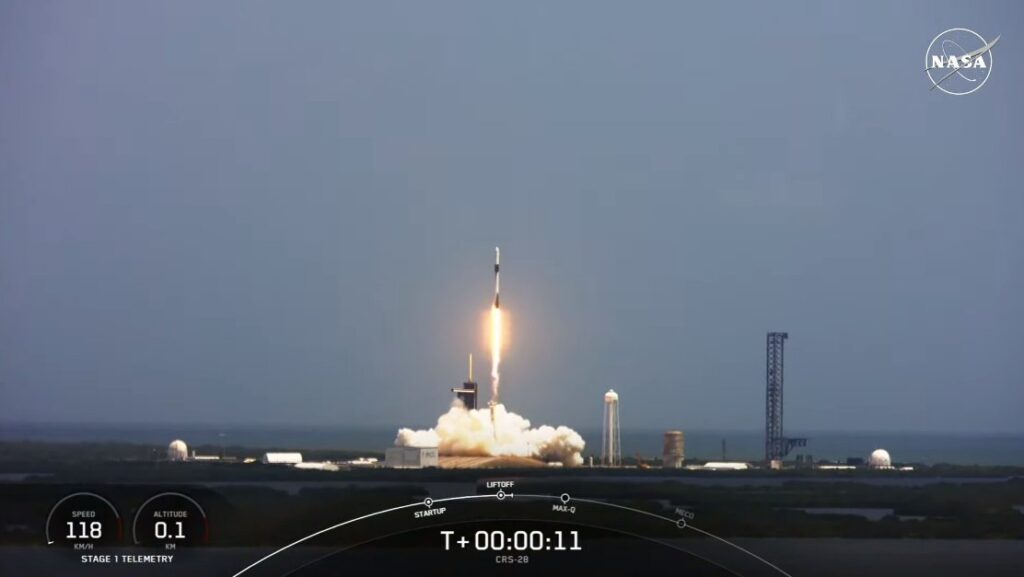
The Philippines launched two cube satellites into the International Space Station Photos on June 5, 2023. Photos from STAMINA4Space and Nasa livestream
MANILA, Philippines — Locally developed cube satellites (CubeSats) have been successfully launched to the International Space Station (ISS), marking another milestone for Filipino scientists, according to the Philippine Space Agency (PhilSA) on Tuesday.
Two new satellites, Maya-5 and Maya-6, have been launched into orbit alongside the ISS, gathering important data for the Philippines’ goal of expanding its global fleet in space.
“The Philippines’ next batch of locally developed cube satellites Maya-5 and Maya-6 were successfully launched to the International Space Station on 05 June 2023 at around 11:47 p.m. [Philippine standard time],” said PhilSA on its website.
The cube satellites were built under the Space Science and Technology Proliferation through the University Partnerships (STeP-UP) project of the STAMINA4Space Program, said PhilSA. The program is funded by the Department of Science and Technology and implemented by the University of the Philippines Diliman (UPD) in collaboration with the Kyushu Institute of Technology in Japan.
The CubeSats were developed as part of UPD Electronics Engineering Institute’s requirement.
“This milestone is the [sixth] successful launch to space of satellites that are made through the collaboration of the Philippines and Japan — including Diwata-1 and Diwata-2. The CubeSats are another addition to the roster of nanosatellites developed and sent to space by our country,” said PhilSA.
With the Diwata launch, Maya-1, Maya-2, Maya-3, and Maya-4 preceded the two latest CubeSats.
“Building our own CubeSats and innovating together with local companies should pave the way for a space tech industry base. It is up to all three entities, government, academe and industry, to collectively sustain this,” said STAMINA4Space Program Leader Maricor Soriano.
The team of scholars who developed the cubes includes Ronald Collamar, Chandler Timm Doloriel, Joseph Jonathan Co, Genesis Remocaldo, Gio Asher Tagabi, Angela Clarisse Chua, Anna Ruth Alvarez, and Khazmir Camille Valerie Macaraeg.
READ MORE:
Young Cebuana artist uses Rubik’s Cube for artwork

